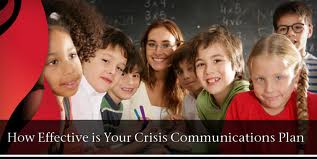


Posted October 30, 2014
Recent media stories have highlighted how important it is for schools to have robust public relations policies. Here are four headlines from major NZ newspapers in the last 10 days: ‘Police probe school bullying’, ‘ERO confirms school’s woes’, ‘Pupils suspended for hazing’ and ‘School Principal faces inquiry’.
 Negative media coverage can seriously lower a school’s reputation. This can have major ramifications. So what must a school do to deal with the threat of negative media coverage and reputation loss among important stakeholders like parents, prospective parents and the local community? An occasional newsletter to parents or Facebook post is not enough.
Negative media coverage can seriously lower a school’s reputation. This can have major ramifications. So what must a school do to deal with the threat of negative media coverage and reputation loss among important stakeholders like parents, prospective parents and the local community? An occasional newsletter to parents or Facebook post is not enough.
At the very least you need a three-pronged Public Relations strategy. On the positive front, you need good relations with their local media. If a crisis does hit, it will have less impact if the school already has a good reputation in the community. This can be grown by getting positive media coverage in local and regional media. Regular blogging can also help. Funding this can be an issue for public schools. But by learning how the media works and want journalists want, you can attract your own positive coverage without spending a fortune (or often a cent). All it takes is for someone to attend a media publicity training course, and have a mentor in the background who is available when required.
The second thing is a Crisis Communication Plan. Once a crisis hits, whether it be an emergency or a reputation issue, it’s too late to plan. You must have a plan for exactly what you will do well before it happens. It’s usually not the crisis that hurts reputation, but how they are dealt with and how quickly the school starts communicating. This again can be difficult to fund for public schools, but by attending a crisis communication planning for schools course, you can get a skeleton plan by the end of the day.
The third prong in the PR plan must be media training for the school’s designated spokesperson and back-up. So many people, school leaders included, have fallen into media traps when the stakes are high. If you don’t know how to get your points across and avoid being taken out of context in tough media interviews, you could blow it all with one quote. Many have. Media training is also important when it comes to attracting your own positive news. Often the first part of that puzzle is getting the attention of the journalist. But then during the interview, you need to know how to get your points into the subsequent story.
While this may all seem daunting, it’s no-where near as tough as it may seem. Your school’s reputation is important. The points outlined here are the best way to grow it in the good times, and maintain it when things go wrong.
For more on my “Get Free Publicity for your School”, “Media Training for School Leaders” and “Crisis Communication Planning for Schools” workshops and private consultations, check out the ‘For School Leaders’ section of my website at www.mediatrainingnz.co.nz or contact [email protected]